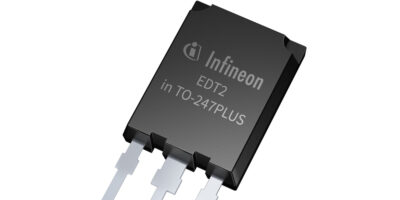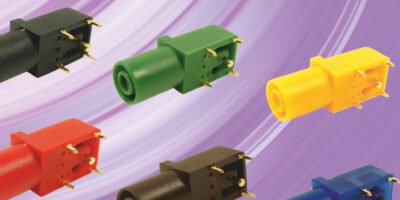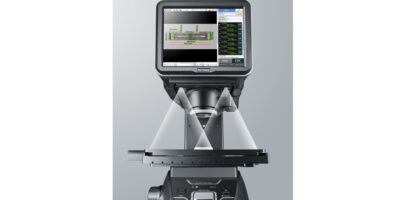IGBTs optimised for automotive discrete traction inverters have been added to Infineon’s portfolio of discrete high voltage devices for automotive applications. The EDT2 IGBTs are supplied in a TO247Plus package.
The AIKQ120N75CP2 and the AIKQ200N75CP2 IGBTs meet and exceed the industry standard AECQ101 for automotive components. As a result, the devices can significantly increase the performance and reliability of inverter systems, said Infineon. They use the automotive micro-pattern trench field stop cell design technology that has already been used in other inverter modules from the company, such as the EasyPack 2B EDT2 and the HybridPack.
EDT2 technology has a breakdown voltage of 750V, supporting battery voltages up to 470V DC. The rated currents of the discrete EDT2 IGBTs are 120 and 200A at 100 degrees C, each with a very low forward voltage, reducing conduction losses by up to 13 per cent compared to the previous generation. With a rated current of 200A, the AIKQ200N75CP2 is claimed to be the best-in-class discrete IGBT in a TO247Plus package. Thus, for a defined target power class, fewer devices are needed in parallel.
The EDT2 IGBTs also feature an extremely narrow parameter distribution. The collector-emitter saturation voltage (V ce(sat)) difference between typical and maximum values is less than 200mV and the gate threshold voltage (V GEth) difference is less than 750mV. The thermal coefficient is positive. These characteristics combine to enable easy parallel operation and power scalability for final designs. Moreover, the IGBTs offer smooth switching performance, low gate charge (Q G) and a high junction temperature (T vjop) of 175 degrees C.
The AIKQ120N75CP2 and the AIKQ200N75CP2 are available now.






